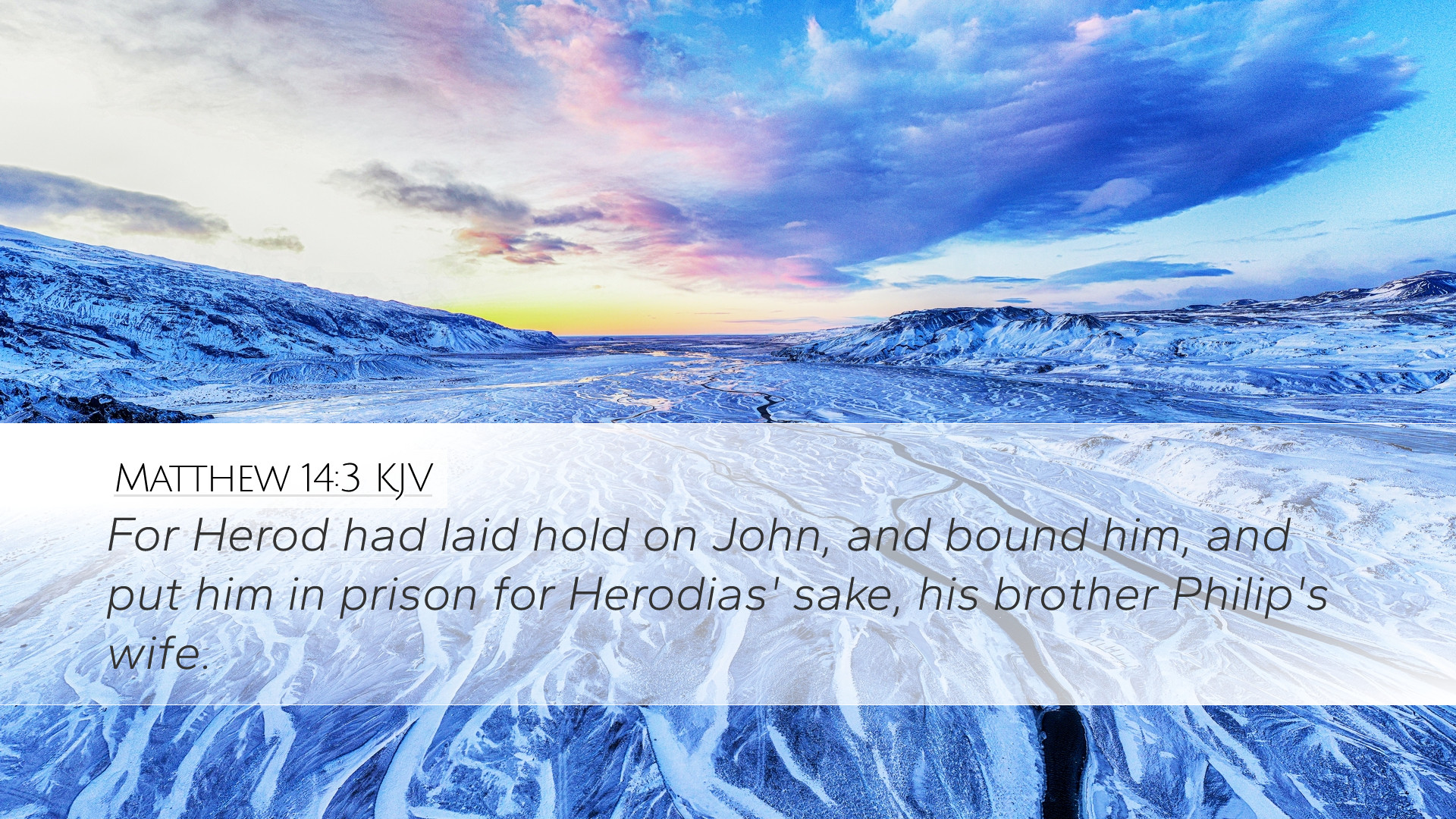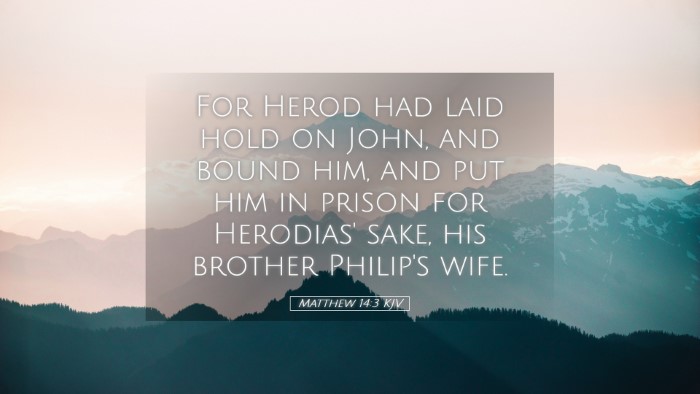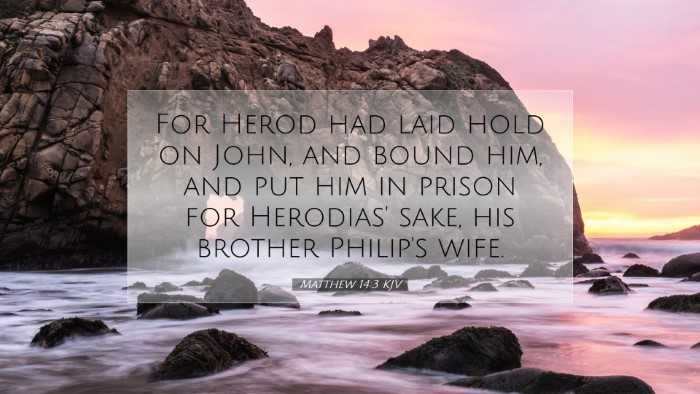Commentary on Matthew 14:3
Verse: "For Herod had laid hold on John, and bound him, and put him in prison for Herodias' sake, his brother Philip's wife."
Introduction
This passage introduces the context surrounding the imprisonment of John the Baptist, setting the stage for the subsequent events that lead to his execution. Understanding the cultural, political, and moral implications of this verse provides deep insight into the prohibitive nature of sin and the stand of prophetic truth against royal power.
Contextual Background
The narrative involves Herod Antipas, the ruler of Galilee, and his controversial marriage to Herodias, which was against Jewish law and considered immoral. John's vocal denunciation of this union not only reflects his prophetic role but also positions him as an adversary to the political powers of his time.
Historical Context
- Herod Antipas: A tetrarch of Galilee, Herod was known for his tumultuous reign, marked by political intrigue and moral failures.
- Herodias: Originally the wife of Herod's half-brother Philip, Herodias's marriage to Herod Antipas was deemed unlawful by John, resulting in his imprisonment.
- John the Baptist: A prophet known for his call to repentance and for preparing the way for Jesus Christ; he is pivotal in the early gospel narrative.
Commentary Insights
Several respected theologians have provided profound insights into this passage:
Matthew Henry's Commentary
Matthew Henry highlights the moral decline represented by Herod’s actions and the lengths to which a sinful heart will go to suppress truth. He notes:
- Opposition to Divine Truth: Henry remarks on how Herod, despite acknowledging John's righteousness, was influenced by fear and desire.
- Severe Judgment for Sin: He emphasizes that John's boldness in speaking against immorality provoked Herod, showcasing the often dangerous nature of prophetic truth.
Albert Barnes' Commentary
Albert Barnes elaborates on the implications of John’s imprisonment, stressing on political pressures. He states:
- Political Motivation: Barnes notes that Herod's decision to imprison John was in large part due to influence from Herodias, who felt threatened by John's condemnation.
- Impact on the Prophetic Voice: He discusses how John’s imprisonment signifies the silencing of a divine voice amid corruption and moral decay.
Adam Clarke's Commentary
Adam Clarke provides a detailed analysis, particularly focusing on the challenges faced by prophets when confronting authority. He asserts:
- Faithfulness Despite Persecution: Clarke points out the importance of John’s stand against Herod's sin, emphasizing the scriptural command to uphold righteousness even in the face of danger.
- Moral Standards vs. Societal Norms: Clarke reflects on the disparity between divine morality and human institutions, drawing attention to the consequences of compromise.
Theological Implications
As we examine Matthew 14:3, we confront several theological implications:
- The Nature of Sin: The passage illustrates how sin can manipulate power dynamics, leading to injustices that silence the truth.
- The Role of Prophetic Witness: John's imprisonment serves as a reminder that a faithful witness may provoke animosity from those who wish to maintain moral ambiguity.
- God’s Sovereign Plan: Despite the apparent triumph of evil, the text underscores that God’s purpose will ultimately prevail through the faithful witness of His servants.
Practical Applications
This commentary brings forth several applications for today's believers:
- Identify and Address Sin: Like John, believers are called to confront sin even when it is uncomfortable or risky.
- Stand Firm in Faith: The story encourages believers to stand firm in their faith, regardless of opposition or societal pressures.
- Pray for Righteousness in Leadership: Followers of Christ are urged to pray for leaders and institutions to uphold moral integrity and justice.
Conclusion
Matthew 14:3 serves as a powerful testament to the cost of discipleship and the reality of prophetic ministry in a world tainted by moral corruption. The insights provided by reputable commentators reinforce the reality that standing for truth often invites conflict, yet it remains imperative for believers to be faithful witnesses to the righteousness of God. In a culture increasingly resembling the times of Herod, the call for courage and truthful proclamation of God’s Word remains ever relevant.


